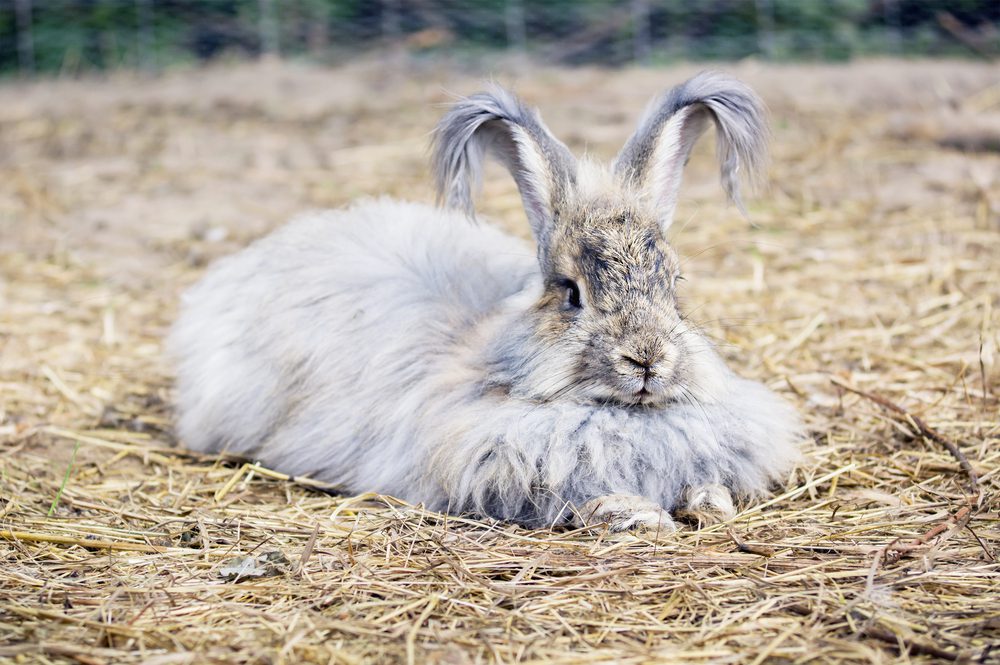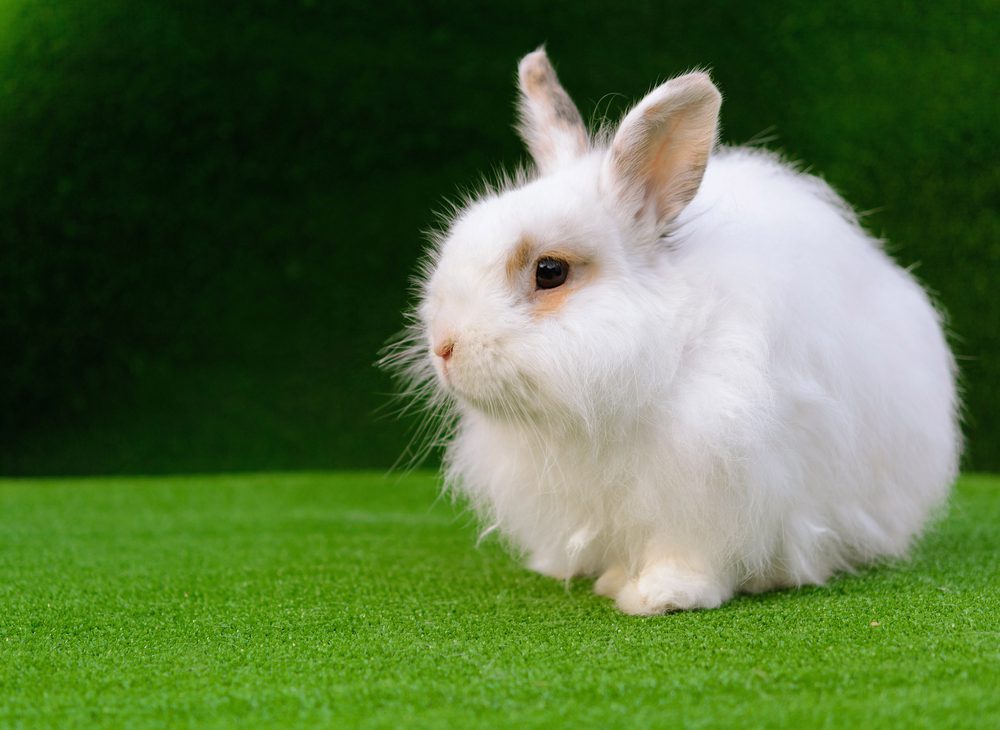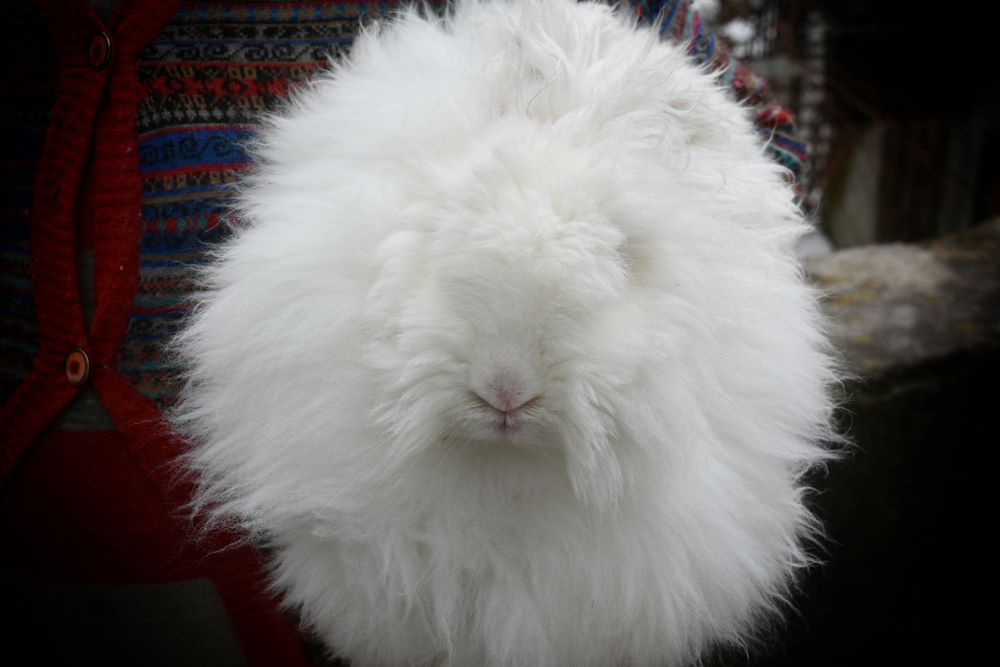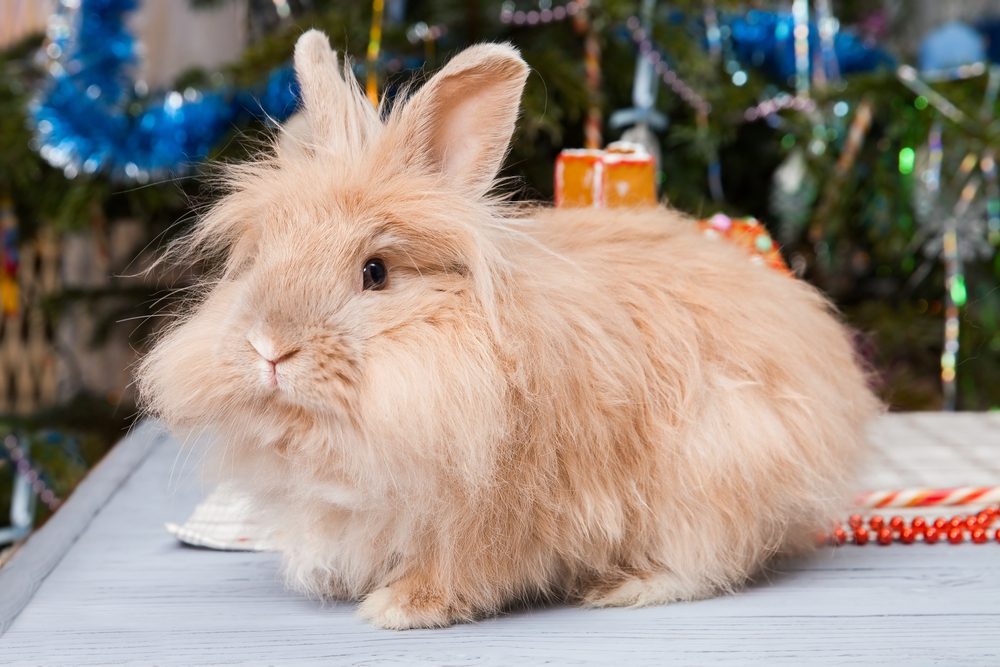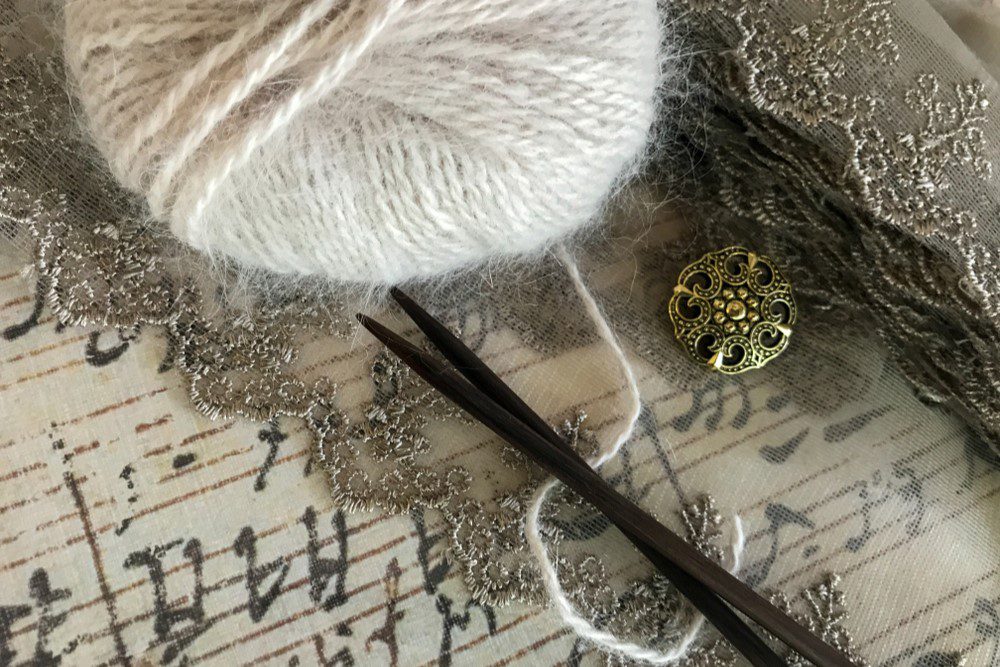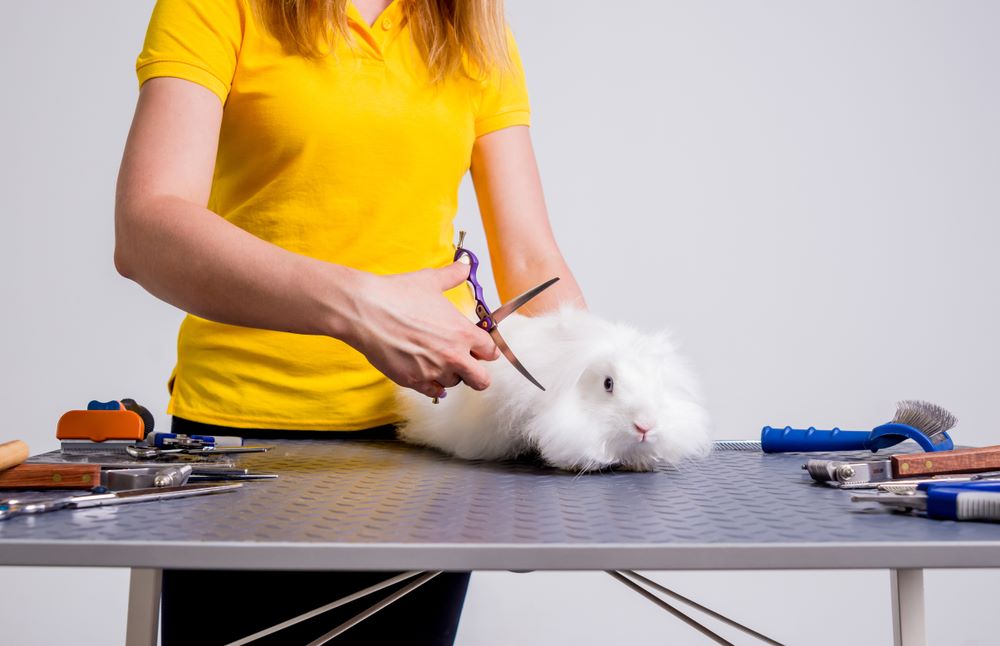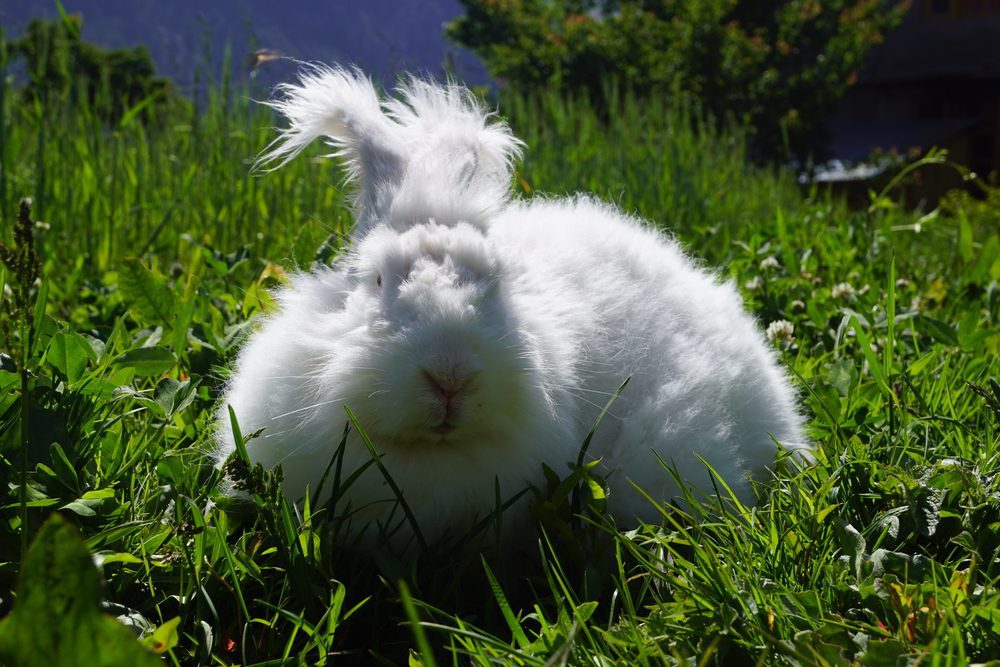Ultimate Angora Rabbit Care Guide: Fluffy Secrets Unveiled!
This article features carefully selected affiliate links to guide you in choosing the best products for your bunny, ensuring a happy and healthy pet experience.
Caring for an Angora rabbit is a remarkable journey filled with fun, but you must know precisely how to keep them happy and healthy.
This guide will explore everything you need to know about caring for an Angora rabbit. We’ll talk about their cozy homes, what yummy foods they like to munch on, and how to play with them in a way that makes their little tails wiggle with joy. And oh, their fur! It’s so fluffy but can get tangled if we don’t groom them. We’ll learn how to keep their fur as soft as a cloud.
Caring for an Angora rabbit is like going on an exciting adventure where you learn something new daily. Whether you’re thinking about getting one or already have a furry friend at home, this guide is filled with tips and tricks to ensure your Angora rabbit is the happiest bunny on the block! So, hop along and start this fluffy and fantastic journey together!
The Basics of Angora Rabbit Care: Starting Right
Creating a Cozy Home for Your Angora Rabbit
Think about making a bedroom for your fluffy friend. Angora rabbits need a big cage, but not just any cage. It should be like a palace for them! Put the cage in a spot where it’s not too hot or cold, and they can be part of the family without too much noise. Add things like a comfy bed, water bottle, and toys inside. It’s like setting up a room for a new friend!
We Recommend
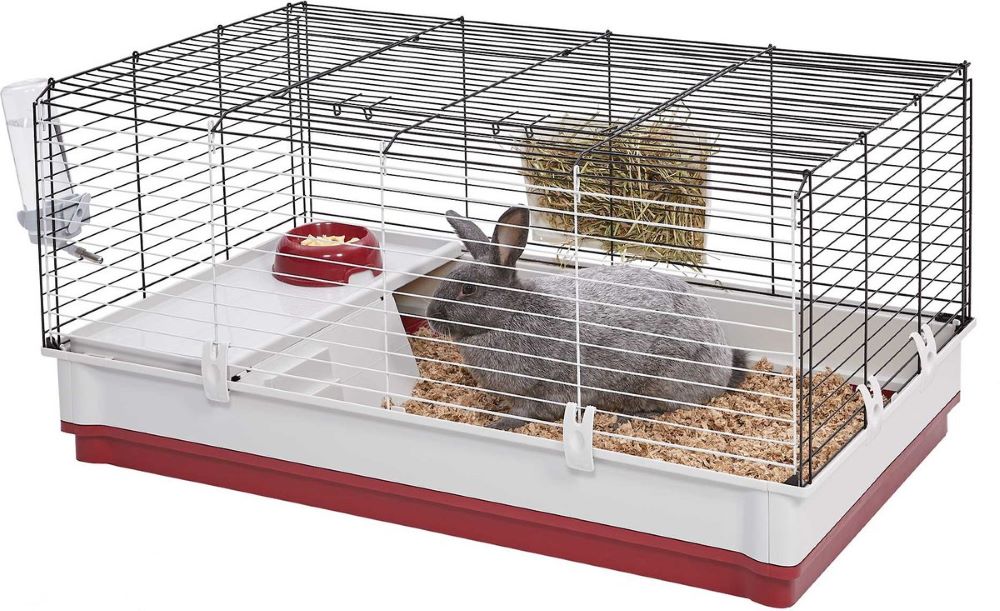
Yummy Foods for a Happy Bunny
Just like you love your favorite snacks, Angora rabbits love their food, too! Their diet is super important. Give them fresh hay every day – it’s like their favorite pizza! Also, they need fresh greens, some fruit, and special rabbit pellets. It’s all about ensuring they get the right balance of nutrients to stay bouncy and healthy.
Exercise and Play: Fun Time for Your Rabbit
Playtime is the best time! Angora rabbits are like little athletes; they must run and jump to be happy. Every day, let them out of their cage in a safe area where they can explore and play. You can also put toys in their cage, like tunnels and balls. It’s fun to watch them play, and it keeps them fit and happy. Just remember, always keep an eye on them during playtime to make sure they’re safe.
A Happy Rabbit is a Healthy Rabbit
Remember, caring for your Angora rabbit is not just about feeding and giving them a place to live. It’s about making sure they’re happy and healthy, just like you’d take care of a friend. Give them love, play with them, and watch for any signs they’re not feeling well. With the proper respect, your Angora rabbit will be your fluffy buddy for a long time!
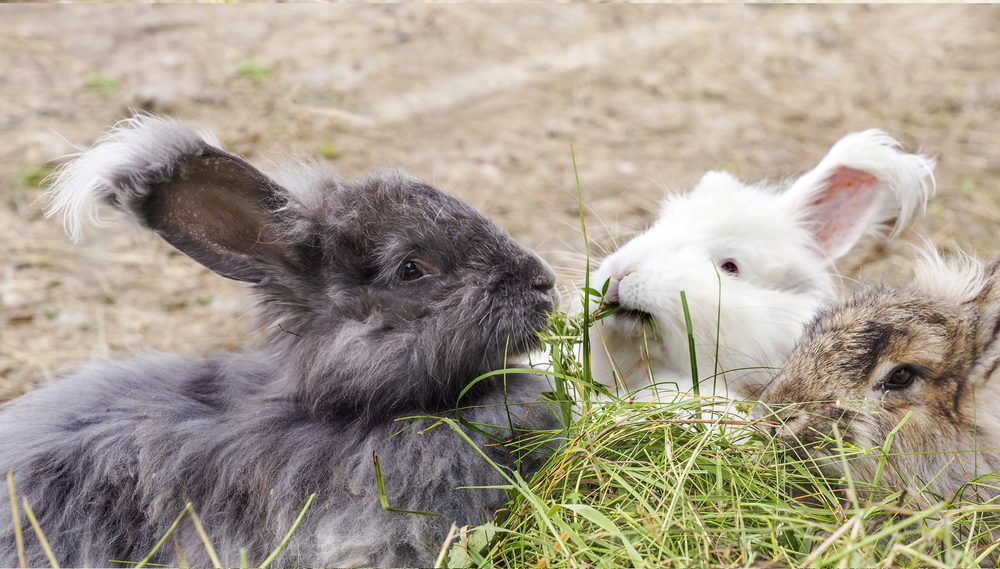
Grooming Your Angora Rabbit: A Fluffy Challenge
Why Regular Grooming is a Must
Have you ever had a terrible hair day? Well, imagine that for your Angora rabbit, but way fluffier! Their fur can get tangled and messy if we don’t care about it. That’s why grooming is super important. It keeps their fur smooth and clean and is a great way to bond with your bunny. Plus, it stops them from eating their fur, which can make them sick.
Step-by-Step Grooming Process
Let’s make grooming fun! First, find a quiet place where your bunny feels safe. Gently hold your rabbit in your lap or on a table. Use a special rabbit brush and gently brush their fur. Start from their head and move towards their tail. Be extra careful and soft around their belly and ears. It’s like giving your rabbit a mini spa day!
Tips for Dealing with Matting and Shedding
Sometimes, Angora rabbits get mats in their fur, like little knots. If you find one, don’t pull it! Use your fingers to separate the fur, or use a mat splitter gently. And remember, during spring and fall, they’ll shed more. So, you might need to brush them more often during these times. It’s all about keeping them looking their best and feeling great.
A Little Patience Goes a Long Way
Grooming your Angora rabbit can be a bit tricky at first. But don’t worry, you’ll both get the hang of it. Be patient and gentle, and your rabbit will start to enjoy grooming time. It’s a special moment to show them how much you care.
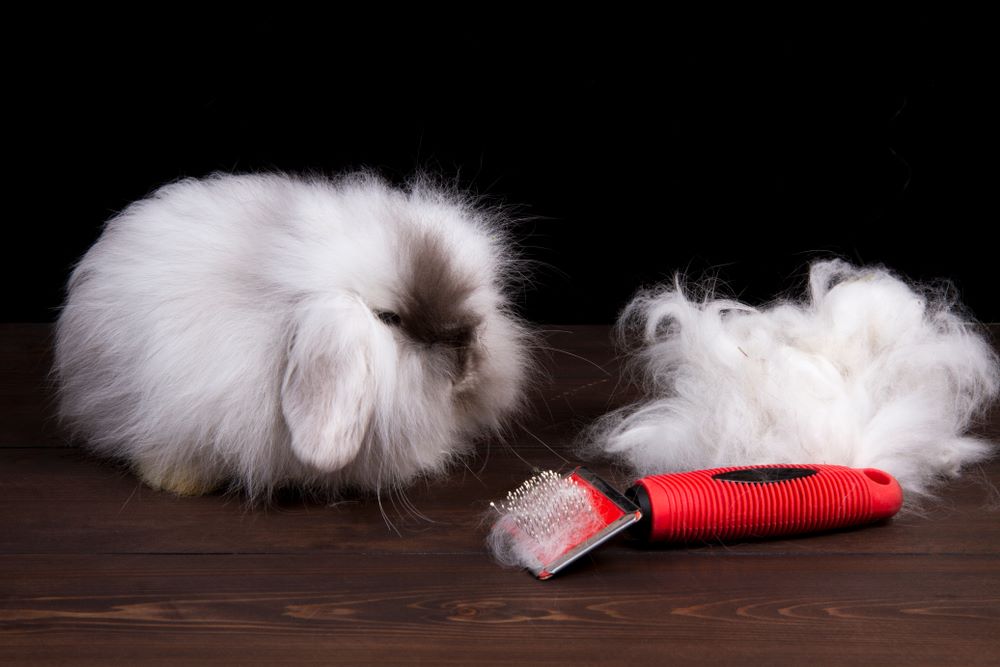
Health Check: Ensuring Your Angora Rabbit’s Well-being
Keeping an Eye on Your Bunny’s Health
Just like you feel icky when sick, your Angora rabbit can too. But they can’t tell us when they’re feeling bad. So, being like a detective and looking for clues is super important. Watch how they eat, play, and act every day. If something seems off, like they’re not eating or are acting strange, it might mean they’re not feeling well.
Common Health Issues to Look Out For
Angora rabbits can get sick just like us. Some common problems are sneezing, runny eyes, or a dirty bottom. They can also get tummy troubles if they eat the wrong food. And because their teeth never stop growing, you need to make sure their teeth are not too long. Giving them the right things to chew on helps keep their teeth in check.
Regular Health Checkups at Home
You can be a home doctor for your bunny! Regularly check their ears for dirt or mites. Feel their tummy to make sure it’s not too stiff or swollen. Look at their teeth and eyes to see if they’re clean and bright. And always check their bottom to keep it clean. This way, you can catch any problems early and keep your rabbit hopping happily.
When to Visit the Vet
Sometimes, no matter how much you care, your rabbit might need a vet. If you see anything unusual, like them not eating, having bathroom troubles, or seeming tired, it’s time to go to the vet. Vets are like bunny experts who can help make your rabbit feel better. It’s always better to be safe and get them checked out.
Socializing and Behavior: Understanding Your Bunny’s Needs
The Social Life of Angora Rabbits
Just like you enjoy hanging out with friends, your Angora rabbit loves being social, too! These fluffy creatures are amiable and love spending time with you and other bunnies. But remember, every rabbit has its personality. Some might be super playful, while others are a bit shy. It’s all about getting to know your rabbit and understanding what they like.
Training and Behavior Tips
Did you know you can train your Angora rabbit? They can learn cool tricks like coming when you call them or using a litter box. Use treats to teach them, and be patient. Training is also excellent for bonding with your bunny and keeping their brain busy. And if your rabbit does something naughty, like chewing on wires, don’t shout. Gently tell them ‘no’ and show them what they can nibble on, like a toy.
Building a Bond with Your Rabbit
Becoming best buddies with your rabbit is the best part! Spend time with them daily, whether playing, grooming, or chilling together. Talk to them softly, and move slowly so you don’t scare them. Rabbits love gentle strokes on their back or head, but be careful around their ears and belly. The more love and time you give, the stronger your friendship will grow.
Do’s and Don’ts of Rabbit Bonding
- Do: Give them time to get used to you.
- Don’t: Rush the bonding process or force them to be held.
- Do: Learn their likes and dislikes.
- Don’t Ignore their signs of discomfort or stress.
Breeding Angora Rabbits: What You Need to Know
Breeding Angora rabbits is a big deal – it’s like helping bring little bunnies into the world! But before you start, it’s important to learn about it. Breeding rabbits means knowing the right age for breeding, finding a mate, and understanding rabbit genetics. It’s about putting two rabbits together and ensuring they’re healthy and the right match.
Responsible Breeding Practices
Being a responsible breeder is super important. This means making sure your rabbits are healthy before they have babies. You must also consider what you’ll do with the baby rabbits. Will you have enough space for them? Can you find them good homes? Breeding should always be about the well-being of the rabbits, not just about having cute baby bunnies.
Caring for Mother and Baby Rabbits
Once the baby bunnies arrive, the real work begins. The mom rabbit will need lots of care, like extra food and a quiet, safe place to nurse her babies. Baby rabbits are tiny and delicate. You’ll need to check on them without disturbing the mom too much. Keep an eye on their growth and ensure they’re all healthy and getting enough to eat.
Learning is Key to Successful Breeding
If you’re thinking about breeding Angora rabbits, the best thing you can do is learn as much as possible. Talk to experienced breeders, read books, and maybe even join a rabbit club. The more you know, the better you can care for your rabbits and their babies.
Winter Care for Your Angora Rabbit: Keeping Them Cozy
Preparing for the Cold
When winter comes, it’s like a big snow party for us, but it’s a time to stay extra cozy for your Angora rabbit. Ensuring your bunny is warm and comfy as the temperature drops is essential. Think of it like bundling up in your favorite winter coat – your rabbit also needs that kind of warmth!
Adjusting Your Rabbit’s Home for Winter
Your bunny’s home needs a winter makeover. If their cage is outside, consider moving it indoors to keep them away from the cold, wind, and rain. If moving them inside isn’t an option, cover their cage with blankets to keep the warmth in, but make sure there’s enough air for them to breathe. Add extra bedding like straw or hay inside their cage so they can snuggle and stay warm.
Changing the Diet for Winter
Just like you crave warm soups in winter, your rabbit’s diet needs a minor change, too. In the colder months, they need more energy to stay warm. This means giving them a bit more food than usual. Add some extra hay and pellets to their diet. But remember, too many treats are not good, even in winter!
Extra Love and Attention
Winter can be lonely for your rabbit, especially if they spend more time indoors. Spend extra time with them, playing and cuddling. This keeps them happy and stops them from feeling lonely. It’s like having a cozy winter friend to hang out with.
Keeping a Watchful Eye
Keep an eye on your rabbit during winter. Make sure they’re eating well and are active. They might feel too cold if they look like they’re not their usual bouncy selves. A quick check now and then makes sure they’re just right, not too cold and not too hot.
Final Thoughts
Now, it’s your turn to apply these insights and embark on a fulfilling journey with your Angora rabbit. Remember, caring for these adorable creatures goes beyond mere tasks; it’s about fostering a loving relationship that enriches your lives. Your rabbit is more than just a pet; they’re a joyful companion and a fluffy family member. So, embrace this adventure enthusiastically, stay curious, and, most importantly, savor every delightful moment with your Angora rabbit. Here’s to a journey filled with joy, learning, and fluffy cuddles!
FAQs: Answering Common Questions on Angora Rabbit Care
What Should I Feed My Angora Rabbit?
Your Angora rabbit’s diet is super important for their health. They love munching on hay – it should be most of their diet. Add rabbit pellets, fresh vegetables, and a little fruit for treats. But be careful, not too many treats! Like overeating candy isn’t good for you, too many treats aren’t good for your rabbit.
How Do I Handle Behavioral Issues?
If your bunny is acting naughty, like chewing on things, they shouldn’t first understand why. Maybe they’re bored, or their teeth are growing too long. Give them toys to chew on and spend more time playing with them. Remember, shouting doesn’t help. Be gentle and patient, and they’ll learn.
What If My Rabbit’s Fur Gets Tangled?
Angora rabbits have lots of fur, and it can get tangled. Regular brushing is the key. If you find a knot, gently tease it apart with your fingers. If it’s awful, you might need a unique tool, but be careful. If unsure, ask a vet or a professional groomer for help.
Can My Angora Rabbit Live With Other Pets?
Rabbits can get along with other pets, but you must be careful. Always introduce them slowly and watch how they act together. Some pets might not understand how gentle they need to be with rabbits. It’s like making new friends – it takes time and patience.
How Often Should I Take My Rabbit to the Vet?
Just like you go for check-ups, your rabbit needs regular vet visits, too. Once a year is a good rule, but take them sooner if you notice anything strange, like them not eating or acting weird. It’s always better to be safe and ensure your bunny is healthy.

